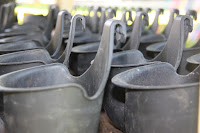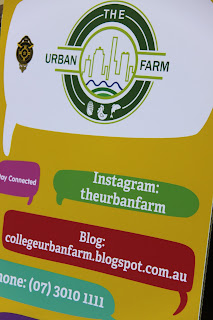BEHIND THE URBAN FARM IS A LARGE
SUPPORT CREW….
It’s been a
magnificent Term 1 for the Urban Farm. Rather than listing the key achievements
and improvements that have occurred, this is a list of the many people who have
been involved with the farm, so far this year, in various capacities. To these people, we say “Thank You” for your
contributions toward ensuring that the Urban Farm continues to be a successful
model of an inner-city food producing system.
From within
the College Community we thank Principal Leadbetter and the CLT, Brendan
Bartlett – Farm Caretaker, Chanelle Heshusius – Communications Manager, Will
Pike – Events Manager, Todd Hazlett – Accounting Manager, Lorraine Kopp – Human
Resources Director, Ben Reyneke and the Facilities and Maintenance team, Julie
and Chris Thompson – Laurie's Canteen, Mallissa Spina and the Café Edmund team, Nigel
and Chris – Printroom team, Laneway Team – Levi, Katie and Jesse, Student
Leader and film maker – John Hunt, Student Assistants – Cale Dennis, Callum
Jesser and Joshua Scott and Jake Sutherland, all of our young urban farmers –
too many to name individually, and the many staff who make donations and who
provide feedback.
From the
wider community we thank Dave Storey – Banks Street Botanicals, Chris and
Joanne Edwards – Australian Catering Services, Abington Aquaculture, National
Worms and Compost, Bruce and Mary Hunt, Joc Curran, Colleen Parr, everyone who
has donated 2nd hand materials, and the many parents who visit and
enjoy the farm.
Contact
Nataleen Kilburn on 3010 1185 or nkilburn@slc.qld.edu.au if you have a question about the
Urban Farm or would like to be involved.



































































